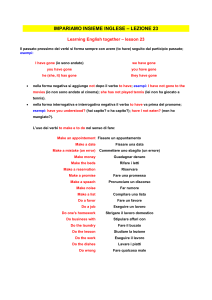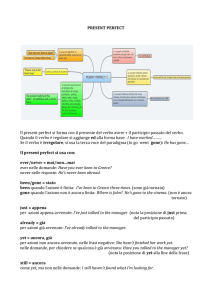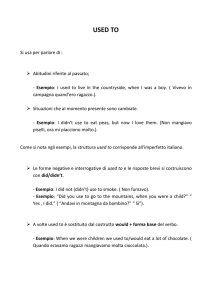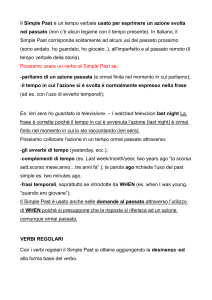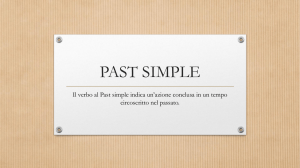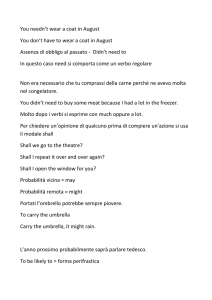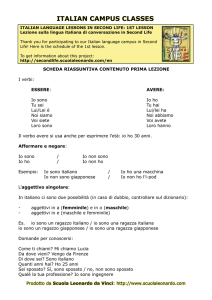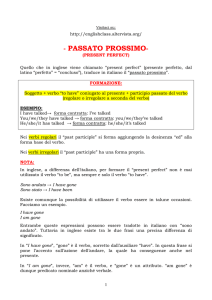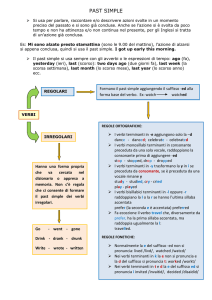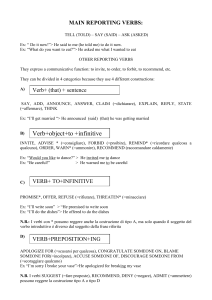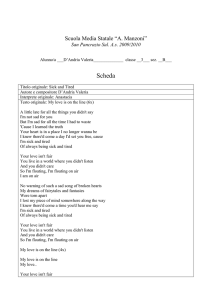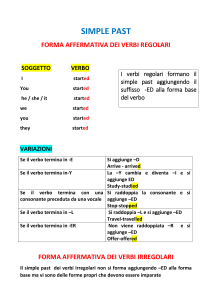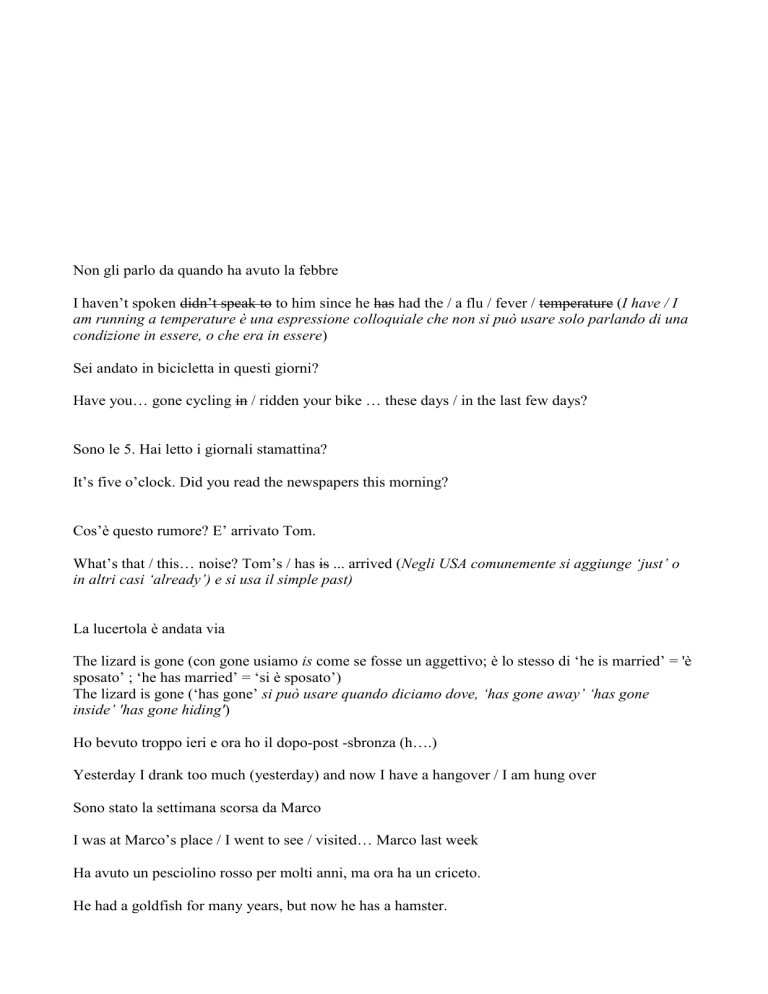
Non gli parlo da quando ha avuto la febbre
I haven’t spoken didn’t speak to to him since he has had the / a flu / fever / temperature (I have / I
am running a temperature è una espressione colloquiale che non si può usare solo parlando di una
condizione in essere, o che era in essere)
Sei andato in bicicletta in questi giorni?
Have you… gone cycling in / ridden your bike … these days / in the last few days?
Sono le 5. Hai letto i giornali stamattina?
It’s five o’clock. Did you read the newspapers this morning?
Cos’è questo rumore? E’ arrivato Tom.
What’s that / this… noise? Tom’s / has is ... arrived (Negli USA comunemente si aggiunge ‘just’ o
in altri casi ‘already’) e si usa il simple past)
La lucertola è andata via
The lizard is gone (con gone usiamo is come se fosse un aggettivo; è lo stesso di ‘he is married’ = 'è
sposato’ ; ‘he has married’ = ‘si è sposato’)
The lizard is gone (‘has gone’ si può usare quando diciamo dove, ‘has gone away’ ‘has gone
inside’ 'has gone hiding')
Ho bevuto troppo ieri e ora ho il dopo-post -sbronza (h….)
Yesterday I drank too much (yesterday) and now I have a hangover / I am hung over
Sono stato la settimana scorsa da Marco
I was at Marco’s place / I went to see / visited… Marco last week
Ha avuto un pesciolino rosso per molti anni, ma ora ha un criceto.
He had a goldfish for many years, but now he has a hamster.
Sono le 11. Stamattina ho scritto dodici email.
It’s eleven o’clock. This morning I have written twelve emails. (pronuncia: ìmeols)
Questa settimana ho fatto 3 incidenti.
I've made had three accidents this week
Mi hanno detto che il prodotto interno lordo è aumentato.
They told They've told me that the Gross National Product has gone up / increased / risen raised. (Se
diciamo a chi viene detta una cosa di solito usiamo ‘tell’ e non ‘say’ = they said that… ma they told
me that….)
Sei mai andato in Irlanda?
2
Have you ever been in to Ireland? (si usa ‘to’ e non ‘in’ perchè been qui funziona come verbo di
movimento)
Non è arrivato in tempo al matrimonio, ieri, quindi non si è sposato.
Yesterday, he didn’t arrive in time to at THE wedding, so / therefore he doesn’t marry didn’t marry
didn’t marry / get married. (‘non si è sposato ieri’ = he didn’t marry’ / he didn’t get married. Con
'go' e i verbi di movimento si usa 'to', con ‘arrive’ si usa ‘at’. Marriage è l’istituzione del
matrimonio, wedding è la cerimonia)
E’ malata da lunedì
She’s been ill / sick … since Monday
Quante volte (H… o….) sei stato malato quest’anno?
How often have you been ill this year?
3

